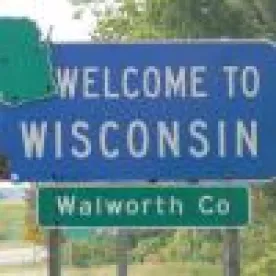This morning Wisconsin Governor Tony Evers signed Emergency Order #12, “Safer at Home Order” (the Order). The Order takes effect Wednesday, March 25, 2020, and will remain in effect until Friday, April 24, 2020.
The Order mirrors similar shelter in place and safer at home orders adopted in other states including Illinois and Ohio. It also adopts guidance from the U.S. Department of Homeland Security (Homeland Security) and the U.S. Cybersecurity & Infrastructure Security Agency (CISA) to help identify essential critical infrastructure workers during the 2019 novel coronavirus (COVID-19) pandemic.
The Order directs all individuals to stay at home and all non-essential businesses and operations to cease. The Order further prohibits “all public and private gatherings of any number of people that are not part of a single household or living unit.”
While the Order applies broadly, exceptions are numerous. The order makes accommodations to allow for essential activities, essential governmental functions, essential businesses and operations, essential travel, health care, public health and human service operations, and essential infrastructure.
For businesses that may not qualify as “essential businesses,” the order also creates a petition process with the Wisconsin Economic Development Corporation (WEDC).
Other businesses and operations are explicitly required to remain closed or operate under specific guidelines. Schools, libraries, salons, spas, and places of public amusement and activity are required to close.
All activity permitted under the Order must follow guidelines issued by the Wisconsin Department of Health Services (DHS), including social distancing, and to the greatest extent possible, utilizing virtual meetings, teleconferencing and remote work.
Highlights of the Order’s provisions
Essential businesses and operations
The order incorporates the CISA’s list of 16 critical infrastructure sectors created by Homeland Security. For businesses operating in multiple states, this provides some level of consistency across state lines, as many states have already incorporated this guidance.
Certain businesses are explicitly allowed to continue operation, including:
-
Stores that sell groceries and medicine
-
Food and beverage production
-
Agriculture companies
-
Organizations providing charitable and social services
-
Media
-
Gas stations
-
Financial institutions and services
-
Hardware and supply stores
-
Critical trades
-
Shipping, logistics and delivery services
-
Laundry services
-
Providers or manufacturers of supplies to work from home
-
Transportation
-
Professional services
-
Healthcare, public health and human services
-
Support for essential infrastructure
Supporting operations
Business engaged in the following activities may also continue to operate while the Order is in effect:
-
Businesses that sell, manufacture or supply other essential businesses and operations or essential government functions with the support and supplies necessary to operate
-
Manufacturing, distribution and supply chain companies producing and supplying essential products and services for essential government functions, essential businesses and operations, and industries such as pharmaceutical, technology, biotechnology, health care, chemicals and sanitation, waste pickup and disposal, agriculture, food and beverage, transportation, energy, steel and steel products, petroleum and fuel, mining, construction, national defense, and communications
WEDC petition process
Acknowledging the breadth of the businesses and operations that qualify as “essential,” the order also creates a separate petition process through which a business may request that the WEDC designate the business as an essential business.
Non-essential business and operations
Non-essential businesses and operations within this catchall category must generally cease activity, but may still engage in remote or work-from-home arrangements.
Non-essential businesses and operations may continue to engage in “minimum basic operations.” Minimum basic operations allow a non-essential business to take steps to maintain the value of the business’s inventory, preserve the condition of the plant and equipment, ensure security, and process payroll and employee benefits or related functions, including where these are outsourced to other entities.
Essential travel
The Order prohibits all forms of travel, except for essential travel. Essential travel includes travel related to providing or accessing activities permitted under the Order as well as activities necessary to care for the elderly, dependents, or disabled or other vulnerable persons. Travel to return to a place of residence is also permitted.
Essential activity
Individuals are allowed to leave their homes for reasons related to health and safety, obtaining necessary supplies and services, engaging in outdoor activity, caring for others, and to attend work as allowed by the Order.
What else is required?
All individuals, organizations, government bodies and any other permitted group of individuals shall, to the extent possible, follow DHS guidelines.
All businesses that remain in operation shall comply with DHS guidelines for businesses.
Enforcement
The Order is enforceable by local law enforcement. Violations of the Order are punishable by up to 30 days’ imprisonment or up to a $250 fine, or both. The Order also supersedes any local order in conflict with the Order.
Next steps
Businesses should review the Order closely to determine if and how they are able to continue operations. This includes understanding how their suppliers and customers may fit within the numerous exceptions to the Order because exemptions are also provided for companies engaged in the manufacturing, distribution and supply chains for critical products and industries.
The “Safer at Home Order” will have far reaching implications for businesses throughout the state. Likely areas of impact include labor and employment issues, supply chain disruption, and vendor and customer management.



 />i
/>i
